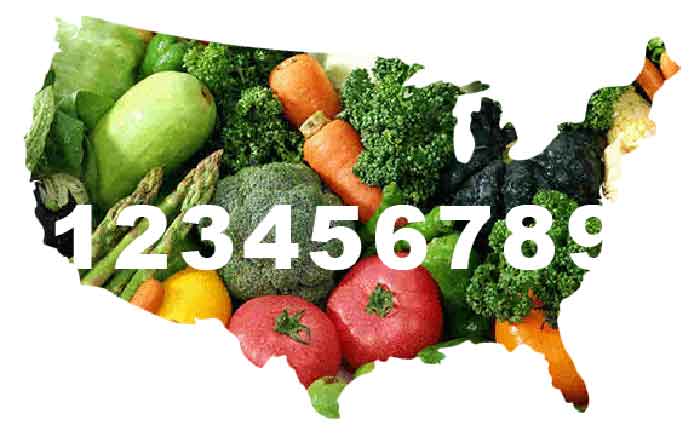- All Americans have access to healthful food;
- Farm policies are designed to support our public health and environmental objectives;
- Our food supply is free of toxic bacteria, chemicals, and drugs;
- Production and marketing of our food are done transparently;
- The food industry pays a fair wage to those it employs;
- Food marketing sets children up for healthful lives by instilling in them a habit of eating real food;
- Animals are treated with compassion and attention to their well-being;
- The food system’s carbon footprint is reduced, and the amount of carbon sequestered on farmland is increased;
- The food system is sufficiently resilient to withstand the effects of climate change.
“Only those with a vested interest in the status quo would argue against creating public policies with these goals.”
— Mark Bittman, Michael Pollan, Ricardo Salvador, and Olivier De Schutter, The Washington Post
In a country where literally millions of citizens are sick and dying because of unnatural, unwanted diseases that attack their bodies, you’d think it would be easy to marshall immediate action to confront the enemy.
We’re not talking ebola here—we’re talking FOOD.
Once in a while, we read something that resonates so clearly and deeply with the values that we KNOW there is a Wellness movement taking shape in our country.
This weekend Mark Bittman, Michael Pollan, Ricardo Salvador, and Olivier De Schutter released an Opinion piece in the Washington Post that will help galvanize our efforts on the national scale and move our nation forward to a healthier existence.
If there is one article you choose to read this week, make it this one.
Bittman et al.
sound a siren for a National Food Policy; national legislation that would unite the currently disparate portions of our government agencies that have a hand in regulating and funding anything related to food.
They argue that the current dismal state of our nation’s health, our environment, livelihoods in rural communities, and corporate dominance over what we eat is a result of this inefficiency.
We find ourselves in this situation because government policy in these areas is made piecemeal. Diet-related chronic disease, food safety, marketing to children, labor conditions, wages for farm and food-chain workers, immigration, water and air quality, greenhouse gas emissions, and support for farmers: these issues are all connected to the food system. Yet they are overseen by eight federal agencies. Amid this incoherence, special interests thrive and the public good suffers.”
The authors lay out an argument that current agricultural and food policies (currently separate) are a result of the Reagan-era push to grow more food, which is a now-antiquated system.
They also point out that government initiatives simultaneously combat each other when it comes to food; promoting consumption of healthy foods on one hand, while disproportionately propping up an industry that creates the junk that we are encouraged not to eat on the other:
While MyPlate recommends a diet of 50-percent vegetables and fruits, the administration devotes less than 1 percent of farm subsidies to support the research, production, and marketing of those foods. More than 60 percent of that funding subsidizes the production of corn and other grains — food that is mostly fed to animals, converted to fuel for cars or processed into precisely the sort of junk the first lady is urging us to avoid.
Acknowledging that there would be a corporate backlash, and most likely a lack of Republican support, Bittman et al. urge President Obama to appoint a new White House council to coordinate efforts and make a more cohesive food policy start working for America.
They are also wise to point out that it is in the President’s best interest to enact such a council in that it may be impossible for him to achieve his term goals without it:
… for the president won’t be able to achieve his goals for health care, climate change, immigration and economic inequality — the four pillars of his second term — if he doesn’t address the food system and its negative impact on those issues.”
Bittman, Polan, Salvador, and De Schutter also layout nine points of focus for a national food policy: guidelines that all Americans can understand and a list that we are sure will take a prominent role in shaping the food movement in the years to come.
We stand emphatically with Bittman, Pollan, Salvador, De Schutter, and all of you who want to see more federal support for a healthier America.
The Union of Concerned Scientists has created a petition urging President Obama to issue an executive order establishing a national food policy.
We’re also starting one here very soon at Wellness Warrior!
We hope that you will stand with us by signing the petition and sending it out to everyone you know!
Sources:
- How a national food policy could save millions of American lives via The Washington Post
- Tell President Obama: It’s Time for a National Food Policy via Union of Concerned Scientists
